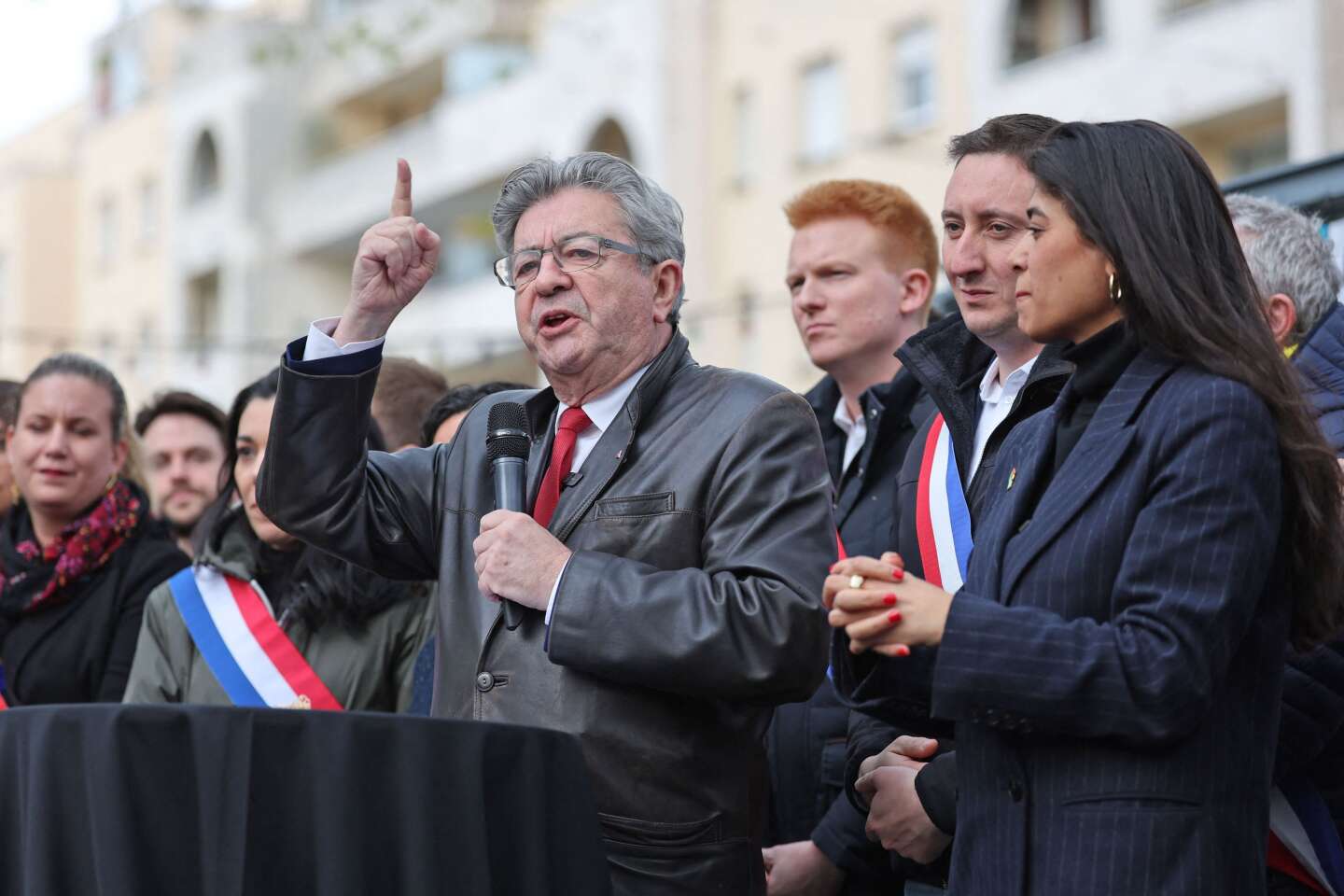


In times of tension, freedoms of assembly and expression – major republican triumphs – require constant arbitration between safeguarding these principles, which are vital to democracy, and preserving public order. It would be naïve to forget this necessary balance, at a time when the mounting tragedies in the Middle East have been increasing the risk of tension in France, a country where Europe's largest Jewish and Muslim communities live side by side, and where the number of anti-Semitic acts is rising worryingly.
Radical left leader Jean-Luc Mélenchon has chosen to make the situation in Gaza central to the La France Insoumise (LFI) campaign for the European elections on June 9. This choice, which amounts to instrumentalizing the vote in working-class neighborhoods and inciting French voters to identify with the protagonists of the war Israel has been waging in the Palestinian territory in retaliation for the Hamas attacks of October 7, 2023, while highly questionable, has the right to be defended, just as the Israel-Palestine question has the right to be publicly debated.
That's why the decision by the presidents of universities in Bordeaux in October; and in Rennes and Lille in April; to cancel conferences planned by the LFI leader for "security" reasons is worrying. That's why the decision by the prefect of France's northern region to ban the meeting planned as a replacement in Lille, on Thursday, April 18, in a private room, by Mélenchon and Rima Hassan, a French-Palestinian legal expert and candidate on the LFI list for the European elections, is problematic.
The risk to public safety was not backed by any precedent from Mélenchon's numerous rallies at universities. On Monday, the LFI leader also gave a conference at Sciences Po Paris, in a tense atmosphere but without incident. The decision by the northern region prefect, on the other hand, has been suspected of being in response to outcry from politicians, when the choices made by a state representative in this field should not be left open to suspicions of obeying this or that pressure linked to the electoral context. The fact that objections would be enough to trigger a ban gives detractors the right to veto a public meeting, the prohibition of which should remain the exception rather than the rule.
Fundamental public freedoms
Moreover, the repetition of unfounded bans fuels Mélenchon's position of being a victim of the system and the bearer of truths that people would seek to silence, which he revels in, as he is struggling in the polls and falling prey to his rivals' ambitions. His outrageous acts, such as comparing the University of Lille's president to the Nazi criminal Adolf Eichmann, don't need to be fueled.
Emmanuel Macron, in the wake of the same prefect's decision, said he wanted everyone "to have their say," including Mélenchon, whose "vision of things" he doesn't "share." Rather than incur the suspicion of defending a divisive political figure to divide the left in the run-up to a European election that will be difficult for his bloc, the president of the French Republic, as a liberal, would be better suited in his role by effectively establishing himself as the guarantor of fundamental civil liberties; instead of abusing them as he has already done with the dissolution – suspended by France's highest administrative court – of the environmental group Les Soulèvements de la Terre, or the systematic ban – which was also rejected this fall – on pro-Palestinian demonstrations.
